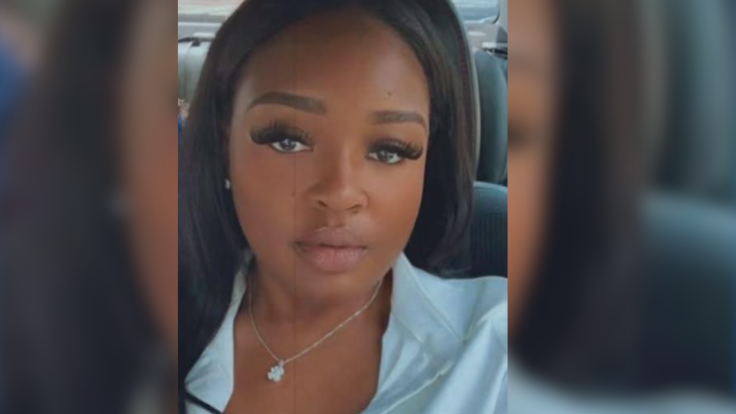Mom of Brain-Dead Nurse Forced to Stay on Life Support to Give Birth Says Newborn is 'Fighting for His Life'
Family of brain-dead nurse speaks out as her newborn remains in critical condition after life-support birth.

When blood clots struck her brain in February 2025, 30-year-old Atlanta nurse Adriana Smith never had a chance.
But the baby growing inside her did—and that single fact would transform a family tragedy into a national flashpoint over Georgia's abortion laws and medical ethics.
Now, months after emergency doctors delivered tiny Chance Smith by caesarean section, the premature infant battles for survival in intensive care whilst his grandmother grapples with raising two boys alone and questions whether anyone should have made this choice for them.
What Happened to Adriana Smith
Doctors determined that she was brain-dead, but because she was pregnant, her family faced a heartbreaking decision.
Her mother, April Newkirk, agreed to keep Adriana on life support so that her baby might survive. Hospital staff explained that if Adriana's pregnancy could be sustained for several more weeks, the baby would have a chance.
For months, Adriana remained in the hospital as her condition showed no improvement. On June 13, after more than three months on life support, doctors performed an emergency caesarean section. Adriana delivered a baby boy at 4:41 a.m.
The newborn, later named Chance, weighed just 1 lb., 13 oz and was immediately placed in the neonatal intensive care unit. Adriana was removed from life support shortly afterwards and pronounced dead.
@snapapicproduction.tv 🗣️The family of Adriana Smith, a metro Atlanta nurse who was declared brain dead in February while pregnant, said her baby boy has arrived. According to her mother, April Newkirk, the infant, named Chance, was born prematurely Friday, June f3, around 4:41 a.m. by emergency Cesarean section. Newkirk said Chance weighs about 1 pound 13 ounces and is in NICU. She's now preparing to say goodbye to her daughter. Newkirk said the hospital will take Smith off of life support Tuesday. "I'm her mother," she said. "I shouldn't be burying my daughter. My daughter should be burying me." "I'm not saying we would have chosen to terminate her pregnancy. But I'm saying we should have had a choice, " Newkirk said in a previousbe okay. interview with 11 Alive. "I think all women should have a choice about their body. And I think I want people to know that," she said. Smith, a registered nurse, loved her job, Newkirk said. #fypシ #news #adrianasmith #repost #spreadawareness #justice #adriana #viralvideo #viralnews #newsanchor #reshare
♬ Very Sad - Enchan
The Baby's Condition
Chance remains in intensive care in Georgia, where his health continues to be fragile. His lungs are underdeveloped, and doctors say he requires ongoing respiratory support along with round-the-clock monitoring.
April Newkirk described her grandson's struggle in an interview with People. 'He's fighting for his life every single day,' she said. 'He's tiny, but he's strong. We pray constantly and believe he will keep getting better.'
The hospital has not provided detailed updates on his progress, but family friends have set up fundraising campaigns to cover his medical expenses and long-term care. For Newkirk, watching her grandson grow stronger while grieving her daughter has been a bittersweet experience.
Why This Case Matters Beyond Georgia
The Smith case has become a lightning rod in America's ongoing debate over reproductive rights and medical ethics. It raises profound questions: Who decides for patients who cannot speak for themselves? How do foetal personhood laws interact with end-of-life care? Should families lose decision-making power when pregnancy is involved?
'I'm not saying we would have chosen to terminate her pregnancy, ' Newkirk has repeatedly emphasised. 'What I'm saying is we should have had a choice. '
Medical ethicists note that such cases remain extremely rare. A 2014 review found most documented instances of maintaining brain-dead pregnant women on life support extend gestation by two to six weeks. Between 1982 and 2010, researchers identified just 30 such cases worldwide, with only 12 infants surviving the neonatal period.
What Comes Next for the Smith Family
Beyond the immediate medical crisis, the family faces mounting challenges. A GoFundMe campaign has raised over £380,000 from more than 14,000 donors to help cover astronomical medical bills and Chance's anticipated long-term care needs.
Newkirk now raises both Chance and Smith's seven-year-old son, who spent months believing his mother was 'just sleeping'. She calls for legal clarity to prevent other families from facing similar ordeals.
'I would like people to know that all women should have a choice about their bodies, ' Newkirk said. 'I want people to know that [Adriana] was a nurse, an RN. The same field that she worked in is the same people who failed her.'
As Chance continues his fight in intensive care, his story stands as both tragedy and testament—a tiny life caught between medical possibility and political reality, between one woman's death and a family's uncertain future. For April Newkirk, her daughter's sacrifice has become a legacy shadowed by questions that may never find easy answers.
'I wish he could smell his mother just one time', she said of her grandson. 'You know, lay on her chest, skin to skin. That's not possible'.
© Copyright IBTimes 2025. All rights reserved.



















